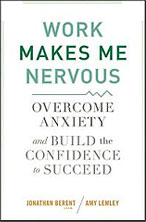Conversation Anxiety

Sixteen-year-old Chris was a high school golf team member who was shooting in the high 70s/low 80s by sophomore year. For years, he had been extremely shy in class, seldom talking and doing his best to make no eye contact with his teachers in the hope that they would not call on him. Outside of school, he became a great golf player, and by high school, he had overcome his shyness to the extent that he felt comfortable going out for the golf team. He had one good friend whom he spent time with outside school. When he would hang out with his team members, some of them would bully him and make fun of him for being “weird.” He became very good at detaching, or disconnecting from his feelings, doing all he could to behave as though this treatment didn’t bother him when deep inside it upset him terribly. But when his close friend turned against him, responding to peer pressure by joining in the bullying, Chris began to suffer depression and slipped once again into not talking when he was around the team. As a result of this depression, his playing began to suffer, and his grades dropped.
Although she was intellectually gifted, 14-year-old Karen spoke only one-word answers in class; outside class, she seldom spoke at all among her peers. He got lost from the group and was anxious and uncomfortable. Rather than turn to a security guard or other adult for help, she called her mother on the cell phone and was on with her for 15 minutes. Eventually, she mustered enough courage to go to security guard. She was able to verbalize her problem, but it was so difficult for her that she almost fainted. When she was reunited with the group, she was relieved, but it she was exhausted from her worry and she lacked insight regarding the others’ perceptions of her. She certainly didn’t want to think about it.
Elliot was a successful mortgage banker with an international firm. At 34, he had already achieved an excellent salary and a lifestyle to match. Yet he lived in fear of being called upon during meetings with the firm’s clients. He even felt anxious when he was just among colleagues he saw every day. At the end of the year, he and his teammates were gathered in the conference room for the awarding of bonuses. Their boss announced it had been a great year, and to add to the celebration, he would draw a name out of a bowl and award one person an extra $10,000. That’s rightâ”a $10,000 drawing. What went through Elliot’s mind? “Please don’t pick me. Not me. I do not want everyone looking at me and clapping while my boss shakes my hand to congratulate me. I don’t want to have to say thanks in front of everybody.”
Social events. Family gatherings. Office meetings. School functions. Why does everyone else seem to be enjoying these situations? Why don’t you? Be clear on what is difficult about it for you. If you back out at the last minute, that indicates avoidance due to anxietyâ”which can develop into a phobia. What is so terrible about that moment when someone has asked you a question┓What are your children up to?” or “Tell us about your trip” or “How is the new computer system working out?” or “What do this quarter’s sales figures look like?” Or God forbid, you get a general question like “How are you doing?” or “Is everything okay?” You know what the answer is. All people expect you to say is “Fine.” You can’t get the answer wrong. What are you afraid of?
In a word, it’s conversation. It’s the back-and-forth that you can’t stand: That moment when someone else has finished speaking and all eyes are on
YOU.
That’s it, isn’t it? You’re afraid of conversation. And you’ve long since stopped asking yourself why. You may believe you really don’t have anything to say. You may tell yourself you don’t know what to say. You might think your conversation anxiety is a permanent personality flaw”“It’s just the way I am.” You may believe it is a personal failure”that you’re “not good enough” or else you wouldn’t respond this way. You have probably “detached” from your feelings just to be able to cope.
Yet you ordered this e-book. Deep down, you know it can be different. You don’t want to live like this anymore. And you don’t have to! Become familiar with anxiety symptoms and triggers through reading this e-book. As you identify passages and exercises that especially resonate with you, consider making a further investment in yourself: Work Makes Me Nervous is available at local bookstorex or online (www.amazon.com or www.barnesandnoble.com).
The thought leader Malcolm Gladwell, author of books such as Blink and The Tipping Point, has identified three things that create good performance: (1) Luck. That’s right” the random set of circumstances that lead us here or there.
(2) Diligent, organized practice. Not so surprising, right? And (3) Sustaining that practice for a specific length of time. The key word in number 3 is “sustaining” clearly, you can’t just overcome your conversation anxiety for one conversation. You are looking to make a lasting change in how you perform in life. Think of overcoming anxiety as a lifestyle change, like learning weight control. People who go on crash diets and lose lots of weight generally gain it back unless they learn an entirely new way of eating. Successful “dieters” establish a whole new relationship with food. In your case, you will want to establish a whole new relationship with the uncomfortable feelings that accompany conversational energy. That visceral (“physical”) reaction occurs just before the thoughts and emotions that characterize conversation anxiety.
Making a lifestyle change is an investment in yourself”an investment of time and energy that will earn interest over time and prove itself to be one of the most valuable efforts you’ve ever made. Think about those three things as they relate to your situation right now:
You had the luck (and the skill) to discover socialanxiety.com and decide to download this e-Book. That much is clear. What about number 2? Are you willing to devote yourself to understanding anxiety symptoms and triggers as they are presented in this book? And 3? Success is all yours if you are willing to sustain these efforts over time, building your skill and gaining confidence.
What does using this e-book involve? Get ready. Here’s a paradox” something that defies conventional thinking: Basically, our point is that you can overcome your fear of conversation by having a conversation! This conversation. That’s right, this e-book is just what you fear most: A conversation. But it’s a conversation that takes place between only you and you, completely in private, at your own pace.
Throughout this e-book, you will participate in a series of questions and answers that will help you guide yourself away from fear and worry and toward freedom and full self-expression.
Does that mean you won’t have to have any other conversations? Absolutely not. Learning to engage in conversation while managing your anxiety is the goal here. Every day, you have the chance to interact with people; armed with new information about the nature of conversation anxiety in general and yours specifically, you can experiment a little”with saying hello to a stranger, asking for directions or help, and so on. But you never have to reveal your “secret” to anyone unless you choose to. You don’t need to tell anyone you suffer from conversation anxiety.
Please print out this e-book. It is designed to serve as an introductory handbook to the topic of conversation anxiety, and the exercises require a written response. Remember, it is for your eyes only, so be as honest as possible in working on each one. This is a conversation with yourself”and no one else. And your success depends on you.
The benefits of proactive conversation may include:
Quarterbacking (or piloting) your life”you are in charge Relationship development
Constructive networking
Healthy communication
Career development
Conflict resolution


